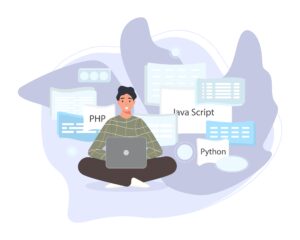Before diving into the specifics, it’s essential to clarify the distinction between programming languages and frameworks:
- Programming Languages: These are the fundamental tools used to communicate with computers. They define the syntax, structure, and logic for writing code. Examples include Python, Java, C++, JavaScript, and Ruby.
- Frameworks: Built on top of programming languages, frameworks provide a pre-structured environment for developing applications. They offer reusable code, libraries, and tools to accelerate development and ensure consistency. Examples include React, Django, Angular, and Ruby on Rails.

The Importance of Language and Framework Proficiency
A strong grasp of programming languages and frameworks is paramount for several reasons:
- Efficiency: Proficiency allows developers to write code faster, optimize performance, and reduce errors.
- Problem-solving: Different languages and frameworks excel at specific tasks. Understanding their strengths enables developers to choose the right tools for the job.
- Adaptability:The tech industry is constantly evolving. A broad knowledge base empowers developers to quickly learn and adapt to new technologies.
- Career Advancement: Mastery of in-demand languages and frameworks can significantly boost career prospects and earning potential.

Key Factors in Language and Framework Selection
Choosing the right language and framework depends on various factors:
- Project Requirements: Consider the project’s scale, complexity, performance needs, and target platforms.
- Team Expertise: Leverage the skills of your development team.
- Community Support: A strong community provides resources, libraries, and troubleshooting assistance.
- Long-term Maintainability: Evaluate the language and framework’s stability and future prospects.

Popular Languages and Frameworks
The programming landscape is vast, but some technologies consistently dominate the market:
- Web Development:
- Front-end: HTML, CSS, JavaScript, React, Angular, Vue.js
- Back-end: Python (Django, Flask), Ruby (Ruby on Rails), Node.js, Java (Spring), PHP (Laravel)
- Mobile App Development:
- iOS: Swift, Objective-C
- Android: Kotlin, Java
- Cross-platform: React Native, Flutter
- Data Science and Machine Learning: Python (NumPy, Pandas, Scikit-learn), R
- Game Development: C++, C#, Unity, Unreal Engine

Continuous Learning
The software development world is dynamic. Staying updated with the latest trends and technologies is crucial. Consider the following strategies:
- Online Courses and Tutorials: Platforms like Coursera, Udemy, and edX offer a wealth of learning resources.
- Coding Challenges and Projects: Practice strengthens your skills and builds a portfolio.
- Open Source Contributions: Engage with the community and learn from experienced developers.
